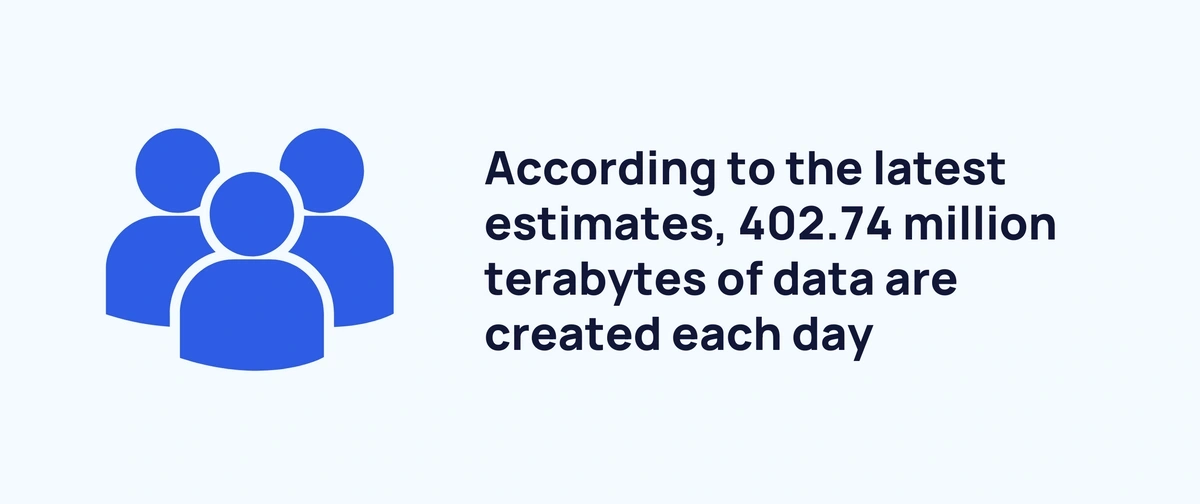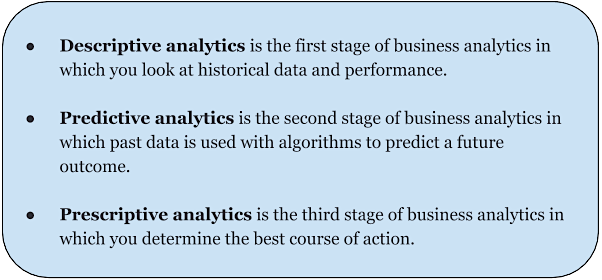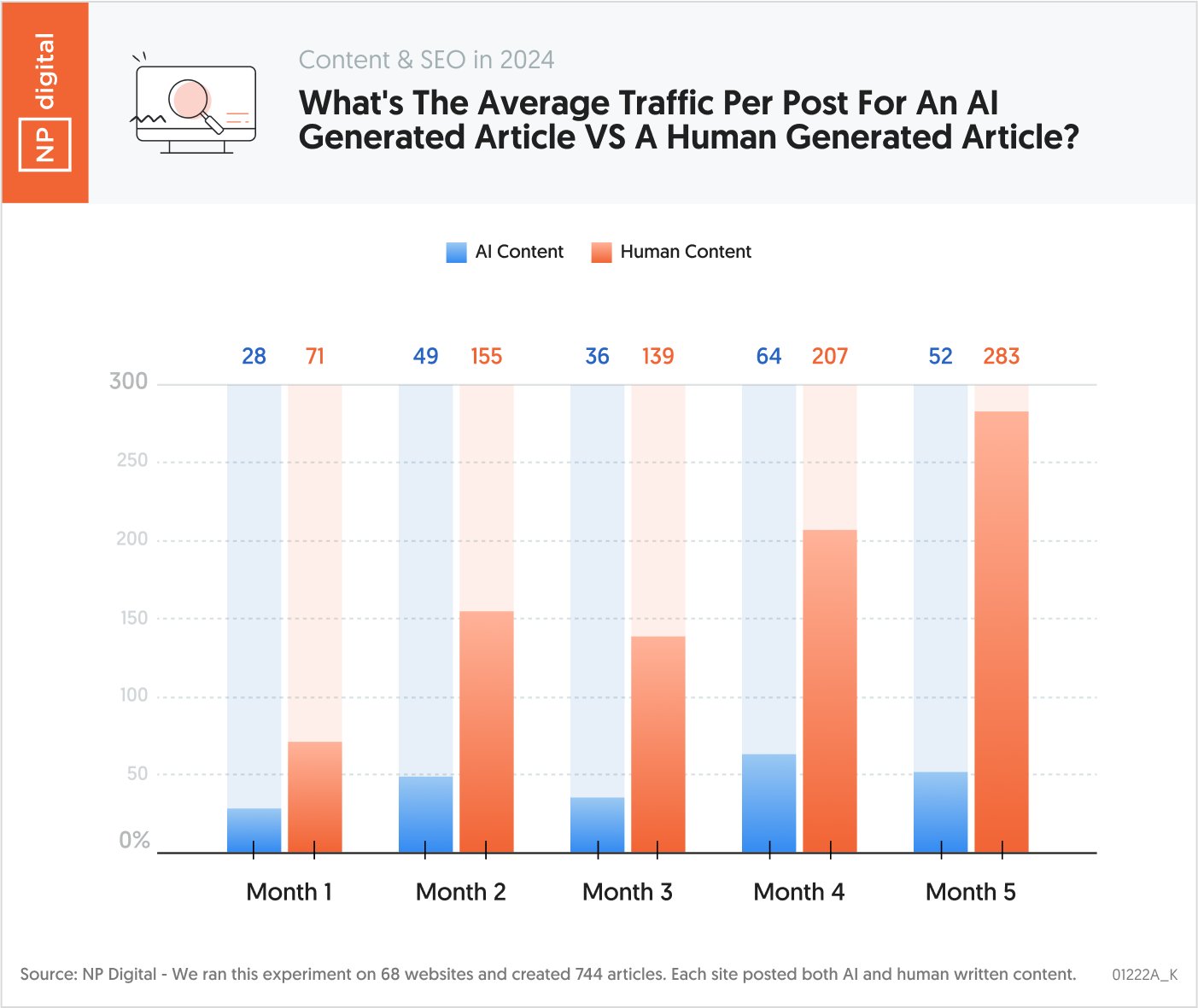Updated in July 2024.
Scientists and engineers have long dreamed of creating computers with human-like sensory perception and decision-making abilities. While this remains a distant goal, advances in Artificial Intelligence (AI) are already changing our lives in many ways.
AI has recently shown great potential in content marketing, a major part of the global digital marketing industry. This growing relationship has sparked debate, with people both supporting and opposing it.
In this article, I’ll explore how AI can help content marketers, the current use of this technology, whether it’ll change our current marketing methods, and what the future holds. Let’s start with the basics.
TABLE OF CONTENTS:
What Is Artificial Intelligence?
In simple words, artificial intelligence is the ability of a computer program (ergo, a machine) to think and learn. It constitutes human-like thinking, problem-solving, communication, and learning skills. As you can see, the whole concept of AI revolves around creating machines that are capable of interacting with their surrounding by themselves without any human interference.
Brief History of AI
Contrary to popular belief, the concept of AI has been around for more than half a century. Stanford researcher John McCarthy, one of the founding fathers of artificial intelligence, first coined the term in 1955. He, along with Marvin Minsky, Allen Newell, and Herbert A. Simon, organized the Dartmouth Conference in the summer of 1956, which marked the beginning of AI as a field of computer science.
Are AI and Machine Learning the Same?
Not really. Machine learning (ML) is one of the most common applications of AI and can gather and analyze vast amounts of data with the help of AI.
From Data Science Central:
“Artificial intelligence is a broader concept than machine learning, which addresses the use of computers to mimic the cognitive functions of humans. When machines carry out tasks based on algorithms in an ‘intelligent’ manner, that is AI.
Machine learning is a subset of AI and focuses on the ability of machines to receive a set of data and learn for themselves, changing algorithms as they learn more about the information they are processing.”
So don’t get confused with the interchangeable use of the terms, AI and machine learning. The scope of AI is virtually limitless. It is a much broader concept than being just a technology:
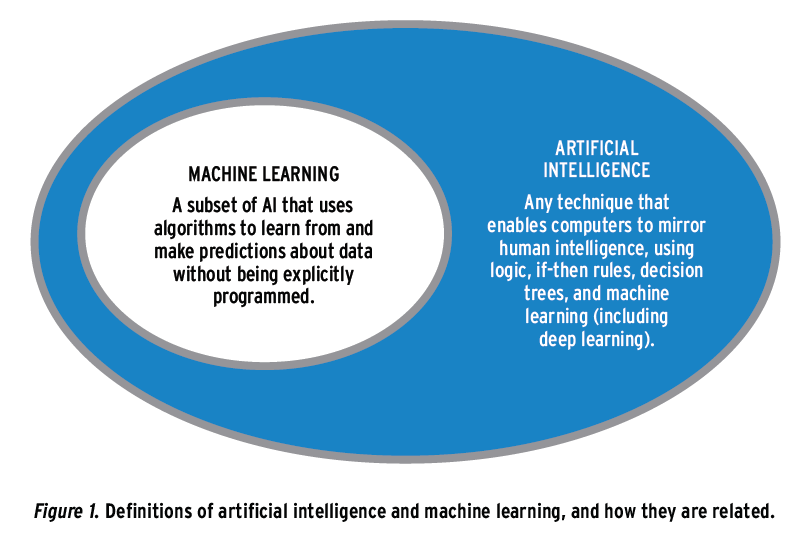
Learn
How AI Can Help Marketers
AI has come a long in the last decade, and it’s slowly spreading to every industry across the globe. Some studies predict that AI will increase global economic gains 45% by 2030:
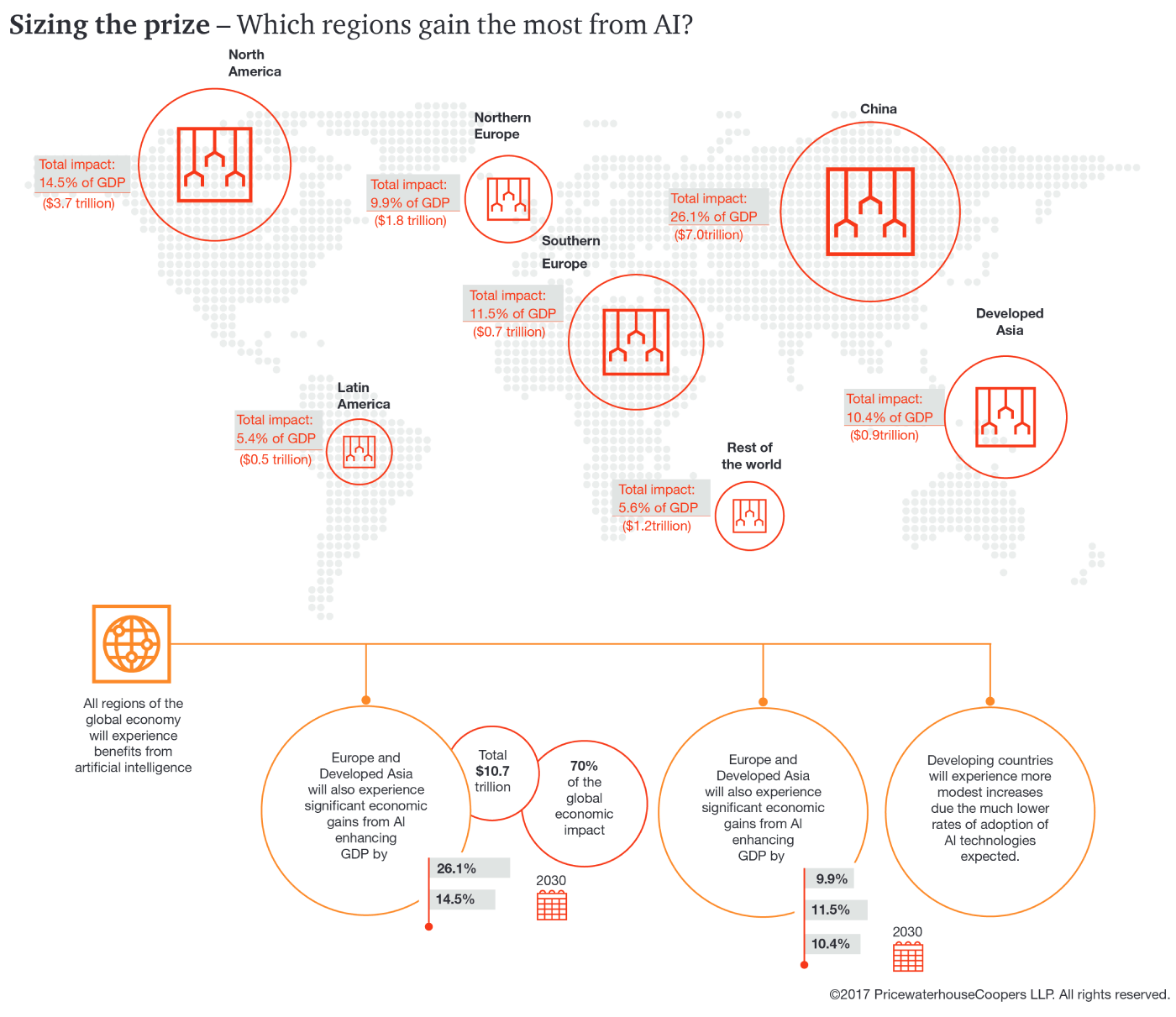
So, where does AI fit into the marketing landscape? The role of AI in marketing is diverse. For instance, AI content marketing tools can help digital marketers make sense of the ever-increasing amount of data on the web, speed up the content creation process, and take advantage of personalized advertising, among other things.
1) Discover Hidden Data Insights
Increased global internet usage and the popularity of social media have caused a tremendous increase in the volume of data we create every day.
In 2017, an IBM Marketing Cloud study found that 90% of the total data on the web was created in the two years before the survey. The study also predicted that with new devices, sensors, and technologies emerging, the data growth rate will likely accelerate even more.
That prediction has come true. In 2024, an estimated 402.74 million terabytes of data is created every day:
This data is a treasure trove of valuable insights into your potential customers and their online behavior. Unfortunately, a large piece of this data remains uncategorized and untagged. It needs to be analyzed to extract useful and relevant information. That’s where AI comes in.
Marketers can use AI to scan internal and external data sources, including your website, social media, news, and others. You can use key phrases to analyze and visualize the textual information to detect unique trends, patterns and irregularities in the seemingly unstructured data.
For instance, a tool like Google Analytics uses AI to show which pages are most popular and why:
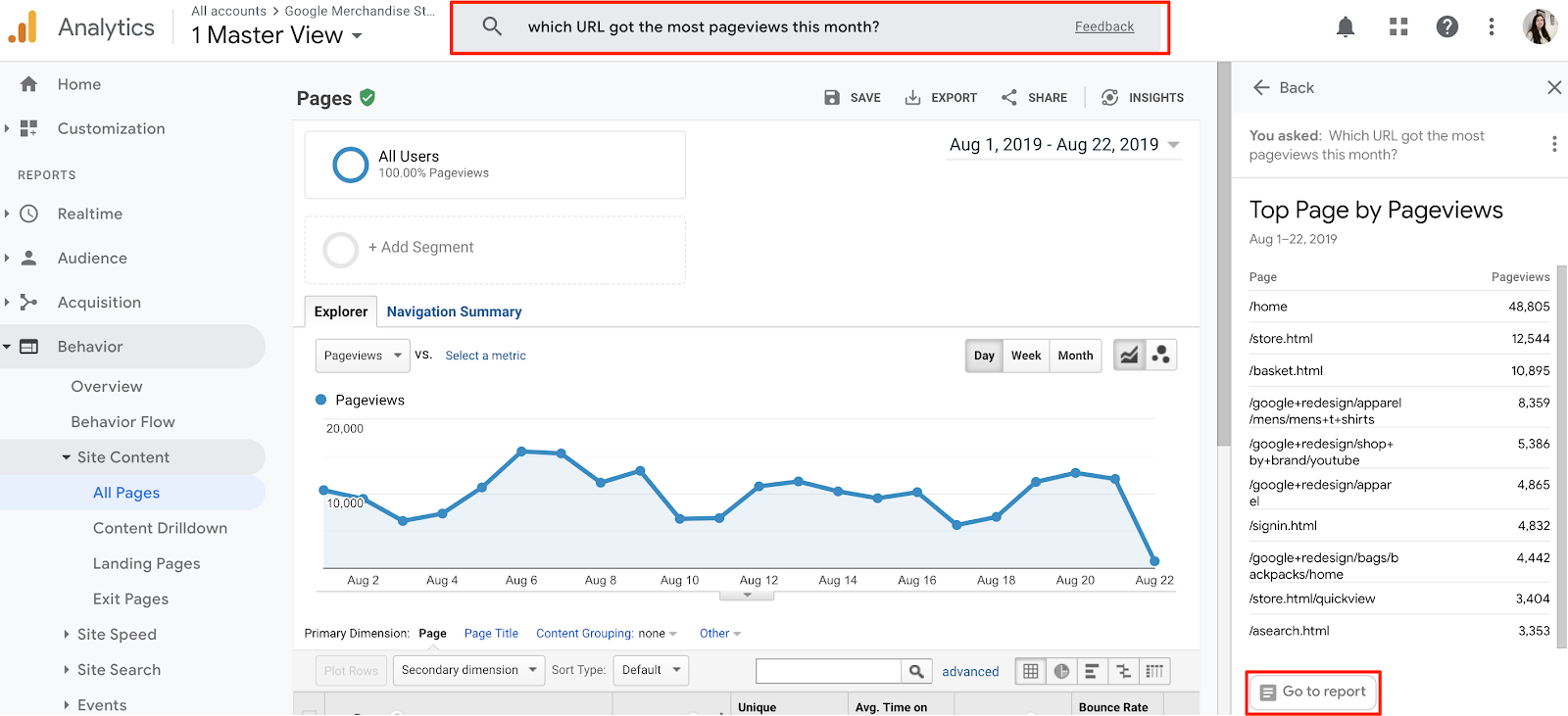
AI can also help you segment your target audience more precisely by analyzing factors like user behavior and demographics. HubSpot, for example, offers marketers a conversation AI that automatically captures voice data and provides insights into customer calls and team performance.
2) Speed Up Predictive Analytics
An increasing number of small- and medium-sized businesses (SMBs) are using predictive analytics. Here’s a quick definition:
AI not only helps you gather valuable insights from hidden data, but also uses those insights to optimize your content marketing efforts. The process is called predictive analytics because it involves data mining, statistics, and modeling to make predictions about future outcomes.
When you already know what your consumers think about your brand, you can then serve them the content that appeals to their needs and interests. Thus, predictive analytics allows marketers to fast-track the sales process — and AI is helping accelerate predictive analysis.
It can quickly analyze a vast amount of data to find meaningful patterns and create a content marketing model based on these insights, which means that it can come up with actionable outcomes quickly compared to a team of marketers and analysts.
Instead of waiting for the calculations to run their course to the end, you can deploy your marketing campaigns in real time. AI also helps avoid replication of data from each source. The consolidated data is not only accurate, but also supports multiple applications and users.
Learn More: How to Use Predictive Analytics for Better Marketing Performance
3) Make Things Personal
Personalization can go a long way in the digital marketing world. According to Statista, 73% of consumers expect a company to understand their unique needs and 62% expect companies to anticipate their needs:
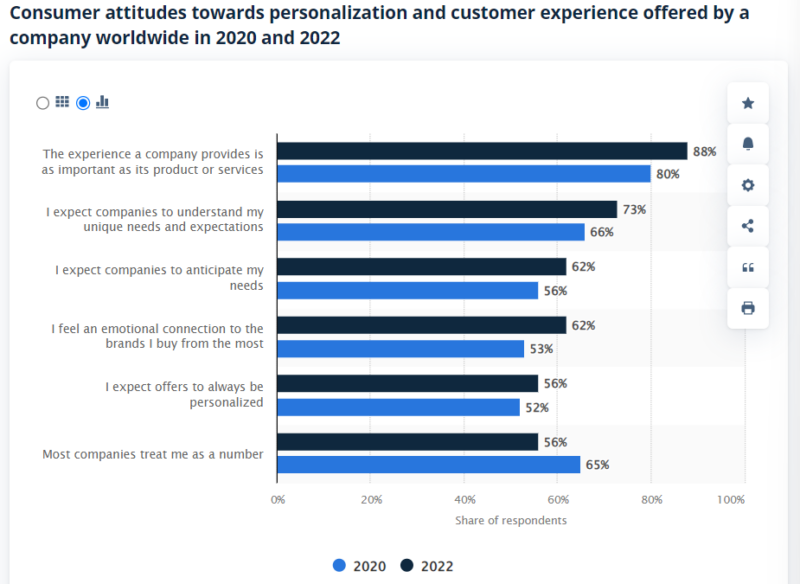
AI is a great tool to help you create solutions that will allow your brand to have one-on-one engagement with each consumer.
From customized emails to tailored e-commerce landing pages, AI can help you personalize several aspects of your marketing efforts. But most importantly, it can help you decode critical customer variables such as real-time location, context, behavior and values.
Personalization can make your email content feel more relevant to your audience and increase engagement:
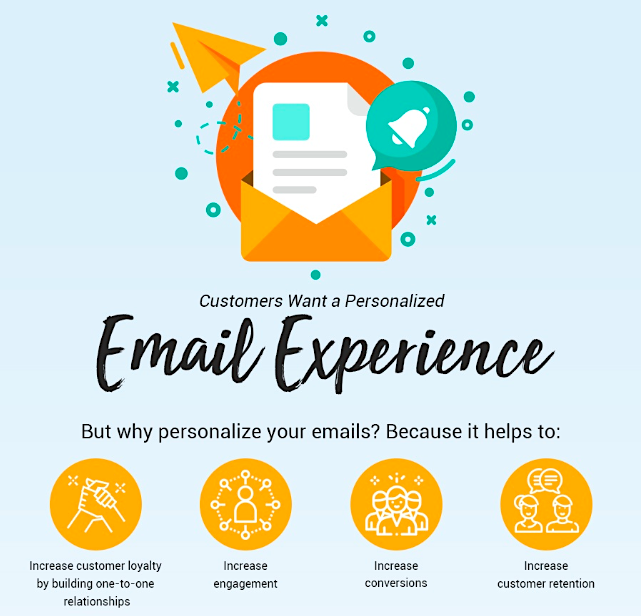
Instead of relying on developing the ideal customer personas, you can create unique personas with the help of extreme personalization. You can also update the variables such as interactions, context, behavior and location changes in real time. Thus, you can stay focused on the data that directly impacts your critical customer variables and avoid data paralysis.
4) AI Content Creation and Automation
As a marketer, you have many responsibilities and writing a blog post often takes the time you don’t have. AI can help you create content although the scope of content automation goes well beyond just content creation.
With ChatGPT, for example, you can write blog posts and create visuals that are tailored to your target audience. Other good AI content creation tools include: Jasper and Writesonic. These tools use natural language processing to come up with content ideas and marketing messages and create a good first draft.
However, there’s a catch: AI-generated articles tend to get less traffic compared to human-written ones, which can hurt your search engine optimization efforts:
AI-generated content is generally well-written, but it tends to lack nuance and human creativity, which can lower engagement and lessen traffic on search engines. Furthermore, Google has been cracking down on content made at scale that it deems “low quality” in its recent core and spam updates.
Relying on AI for all your content creation needs is not the best approach. Instead, try to include human oversight in the process for quality control. This balanced approach is currently the best strategy for content creation.
5) Chatbots for Customer Service
AI-powered chatbots have become the norm in customer service. These bots are smart enough to handle a wide range of tasks, from guiding customers through complex tasks to answering FAQs.
Chatbots are especially useful for sales, support, and marketing functions:

Here are some practical ways you can add chatbots to your marketing efforts:
- Use chatbots to answer common queries: Chatbots can reduce the workload of human agents by answering common questions like basic troubleshooting, appointment scheduling, and more.
- Personalized interactions: Chatbots are sophisticated enough to access past interactions, preferences, purchase history, and other customer data to personalize interactions and provide tailored recommendations. Tools like ManyChat and Drift offer these features.
- Support across multiple channels: With tools like Chatfuel, you can deploy chatbots across multiple channels, including messaging apps, social media, and your company website.
Key Takeaway: Adding chatbots to your customer interactions can provide personalized, efficient, and fast support.
Want to leverage AI for content marketing? Single Grain’s AI marketing experts can help!👇
Who’s Using AI Today (Examples)
Setting all the hype aside, let’s see who is using AI today and how, starting with content creation bots.
1) Heliograf by The Post
The Washington Post began using its in-house AI content creation tool called Heliograf for creating short reports for the Rio Olympics and these days it churns out stories about congressional races and football games as well.
By September 2017, the Post had published 850 stories written by Heliograf. However, they are more for short journalistic reports like the one below:

2) Quakebot by LA Times
The Los Angeles Times created the Quakebot, a content creation tool, to report earthquake news. Whenever an alert comes in from the U.S. Geological Survey, Quakebot extracts the relevant data and writes the report in a template.
After review by a human editor in their content management system, it gets published as depicted below. Now the content creation bot even has an X handle of its own:

3) Peach Aviation Customer Service
Peach Aviation, a Japanese airline, demonstrated how AI content tools can assist in optimizing customer service responses. The airline uses Desse, an AI-powered algorithm, for customer interactions. The AI tool is capable of providing customer support in seven languages, including Japanese, English, traditional Chinese, simplified Chinese, Cantonese, Korean, and Thai.
In a one-month trial period that ran from December 2017 to January 2018, the system was able to provide automatic responses to 87% of the approximately 100,000 inquiries received in those languages:

4) National Geographic’s Albert Einstein Facebook Messenger Chatbot
In 2017, National Geographic launched its first-ever scripted drama series called Genius, setting a new milestone in its history. As the show was about the life of Albert Einstein (in season one), the channel decided to come up with a chatbot that allowed fans to chat with Albert Einstein:

The AI-powered chatbot talked about the personal and professional life of Einstein, including relativity, other science topics, his relationships, or anything else. It had a sense of humor and “a masterful understanding of when to use GIFs” and proved to be an incredible publicity boost for the show.
5) Sephora Virtual Artist
Sephora, a leading beauty and cosmetics brand, uses AI for marketing. You can use the Sephora Virtual Artist app to upload your selfie. The app uses face recognition technology to recognize your unique facial features and gauge your skin tone:
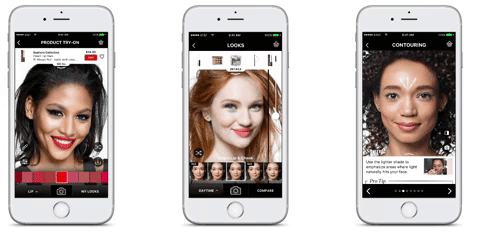
Using an augmented reality overlay, you can try different makeup products virtually to see which one suits you the best. You can directly purchase those products through the app. Sephora has also launched a web version of this application.
Learn More: How AI Marketing Strategies Are Changing Marketing
Does This Mean the End of Present Content Marketing?
In its current state, AI can’t completely replace existing marketing strategies or the human element. However, marketers need to adapt their current content marketing strategies to incorporate AI.
Carefully study your business goals and market niche to understand what role AI-based technologies can play in it. Take the content creation bots for instance: they’re still not equipped to produce high-quality content without human intervention.
Content marketing relies on storytelling and emotional connections. While AI can suggest topics and optimize content, humans create the stories that resonate with audiences. Marketers can use AI to improve their strategies, but they still need to craft the messages.
So, AI is not ending present content marketing. It’s making it smarter and more efficient. By combining AI insights with human creativity, marketers can create even better content.
Last Thoughts on Content Marketing and AI
Content marketing and AI are a powerful combination. AI tools help marketers understand their audience better and create more effective content strategies.
Using AI in your content strategy can automate content audits, topic research, and the creation of data-driven content briefs, enhancing content effectiveness and helping marketers discover quality content ideas. AI tools can analyze data, uncover patterns, and provide valuable insights that would be difficult for humans to find on their own.
AI doesn’t replace human creativity. Instead, it enhances it. Marketers still need to craft compelling stories and create content that connects emotionally with their audience. AI provides the data and insights, but humans bring the creativity and intuition needed to make content truly engaging.
As AI technology continues to advance, the partnership between AI and content marketing will grow even stronger. By embracing AI, marketers can stay ahead of trends and create content that resonates with their audience. The future of content marketing looks bright with AI as a key player.
Need help merging AI into your content marketing strategy? Single Grain’s AI marketing experts can help!👇
Related Video
For more insights and lessons about marketing, check out our Leveling Up podcast on YouTube.
Additional contributed by Alex Raza.
